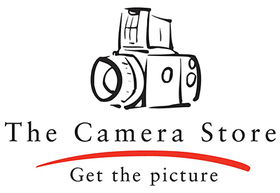Fresh air, excited photographers, stunning vistas. You can experience all of this and more during Sarah Fuller’s low-tech photography workshop, The Pencil of Nature, in the Columbia Mountains! During this week-long workshop, participants will be guided through numerous low-tech photographic processes while experiencing the stunning Gold Range mountains. To learn more about this amazing, low-tech workshop, we asked Sarah a few questions and least to say, this workshop sounds outstanding!
What inspired you to do a low-tech analog photography workshop?
I’ve been working with low-tech analog processes in my own practice for many years and am interested in blending older techniques with more modern technology. I think the process of slowing down and working with analog materials is an important aspect of the workshop, as well as engaging with place and embracing serendipity through low-tech or slower historical processes.
How did you get into low-tech analog photography?
I first learned most of these processes when I was a student at Emily Carr in the early 2000s. We learned how to make pinhole cameras in Intro to Photography and I later learned about alternative historical processes in a course titled “Photo Fabrication”. However, it wasn’t until the mid-2000s that I really embraced using these techniques in my own work. I met Dianne Bos through the Banff Centre was blown away by her work. The way she spoke about pinhole photography and time directly influenced my pinhole project The Book of Dreams (2008-2010). Dianne and I have since become friends and have organized low-tech workshops in France through our project The Institute of Unusual Studies. I also had the chance to experiment with and teach alternative photo processes through my position as Photography Facilitator at Banff Centre (2005-2015). During my time at Banff, I created an Alternative Processes darkroom for artists to work with Cyanotype, Cyanotype toning and Van Dyke Printing processes and learned a lot these techniques through creating that space.
Why do you feel low-tech analog photography is an important topic to teach?
Well- with a process like pinhole photography there’s something really cool about actually building your own camera. I find that students learn much more about how cameras actually work by making their own camera from the ground up. There can be a transformational ‘a-ha’ moment the first time someone develops a pinhole negative and it actually works. I also feel that techniques like pinhole and Holga cameras allow you to play with light in a more organic way. Plus – it’s magical when you see a Cyanotype or Anthotype emerge as it develops in the sun or when you realize a pop-can can make an exposure. It’s a real hands-on, alchemical kind of discovery.

Why did you choose to make this a fly-in, Backcountry Mountaineering workshop?
I’ve always wanted to combine my passion for photography with my passion for hiking and being in the outdoors. In 2018, I completed by Apprentice Hiking Guide Certification through the ACMG with the aim to facilitate backcountry photography workshops. Hiking and low-tech photography provide the perfect opportunity to slow down and appreciate the natural environment.
Galena Mountain Guides run the Backcountry Mountaineering Camp and I’ve known the owners, Natelle and Pierre, for over 20 years. They are avid supporters of the arts and we have been in discussion about facilitating this kind of workshop since 2014. I had the opportunity to visit the Backcountry Mountaineering Camp in 2019 and immediately thought it would be an amazing basecamp for a photo workshop. The camp combines stunning alpine vistas with comfortable tent accommodations and delicious food. The opportunity to run a photo workshop in the alpine with Galena Mountain Guides is a dream come true.
Why did you choose the Gold Range for this workshop?
Galena Mountain Guides chooses the site of the camp each year and I was thrilled to hear that it will be in the Gold Range in 2021. I have always wanted to visit this area and am excited about the potential for capturing images in this range.
What do you hope participants get out of this workshop?
I hope participants will get a new appreciation and understanding of low-tech photography techniques like pinhole, Cyanotype and Anthotype in a relaxed and awe-inspiring location. I also hope folks will have the chance to unwind and unplug after what has been a very stressful time. I can’t think of a better place to do this than in a beautiful backcountry setting.
For more information on Sarah Fuller’s low-tech photography workshop, The Pencil of Nature, and to apply, click here!



